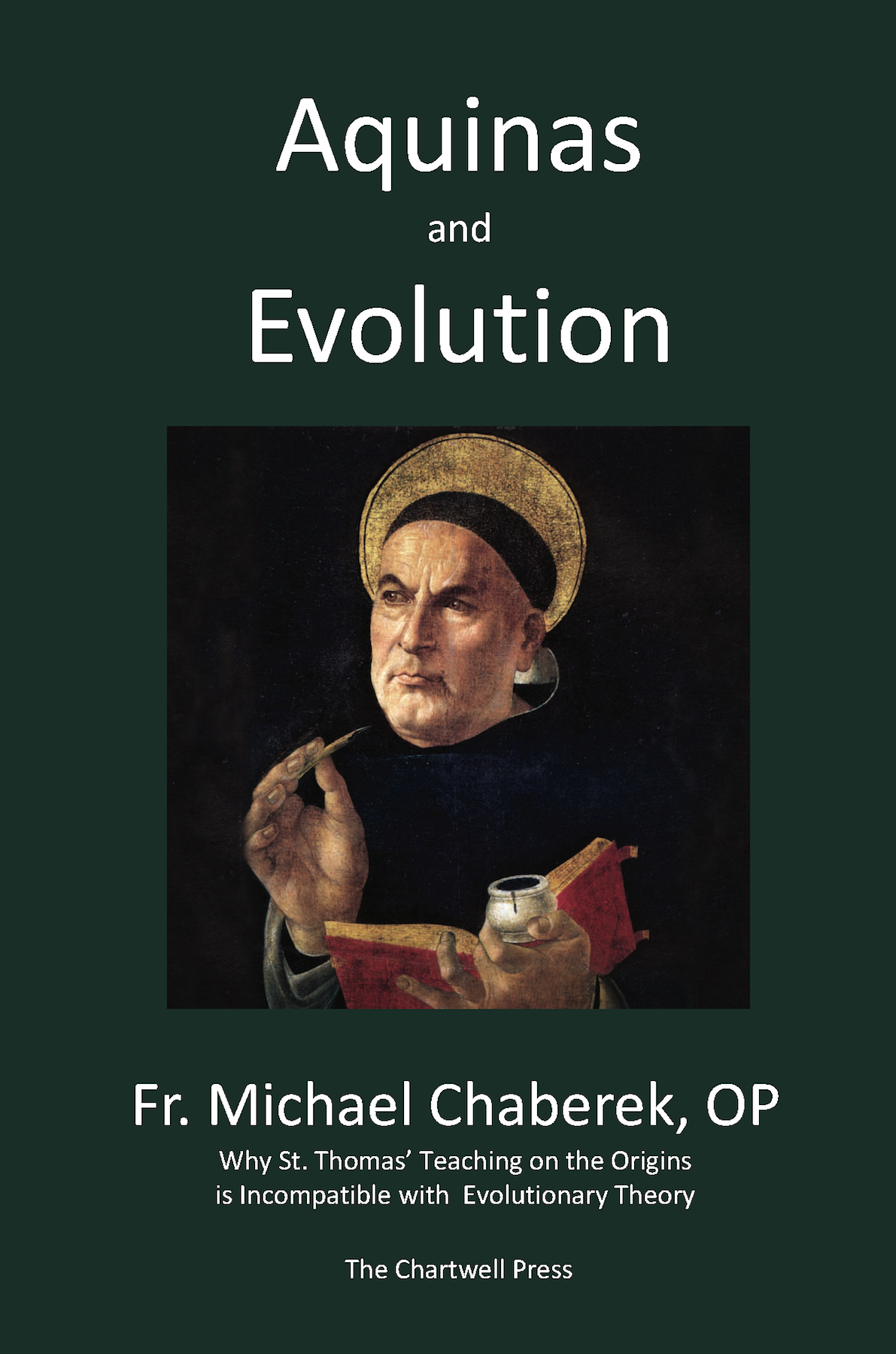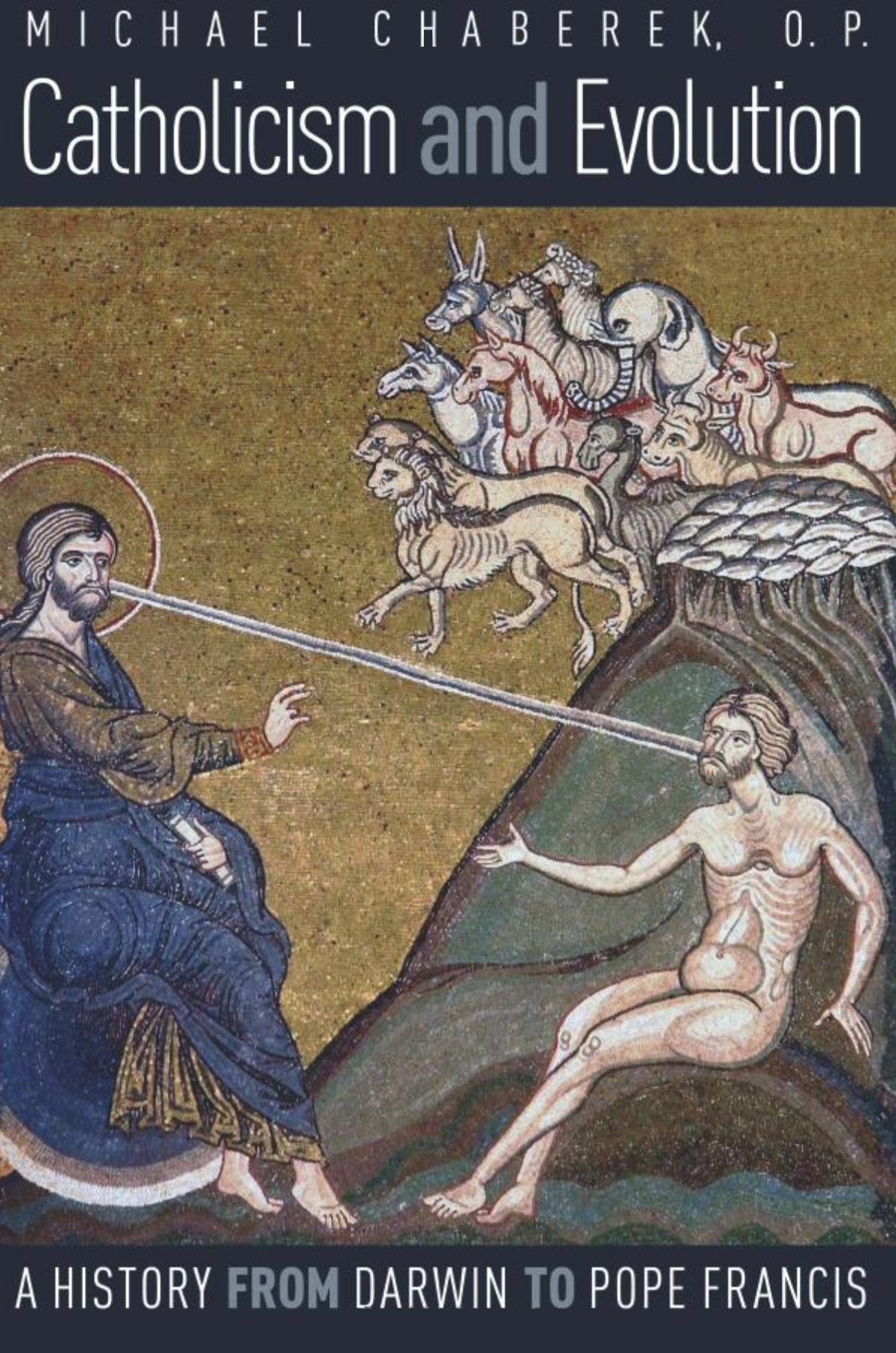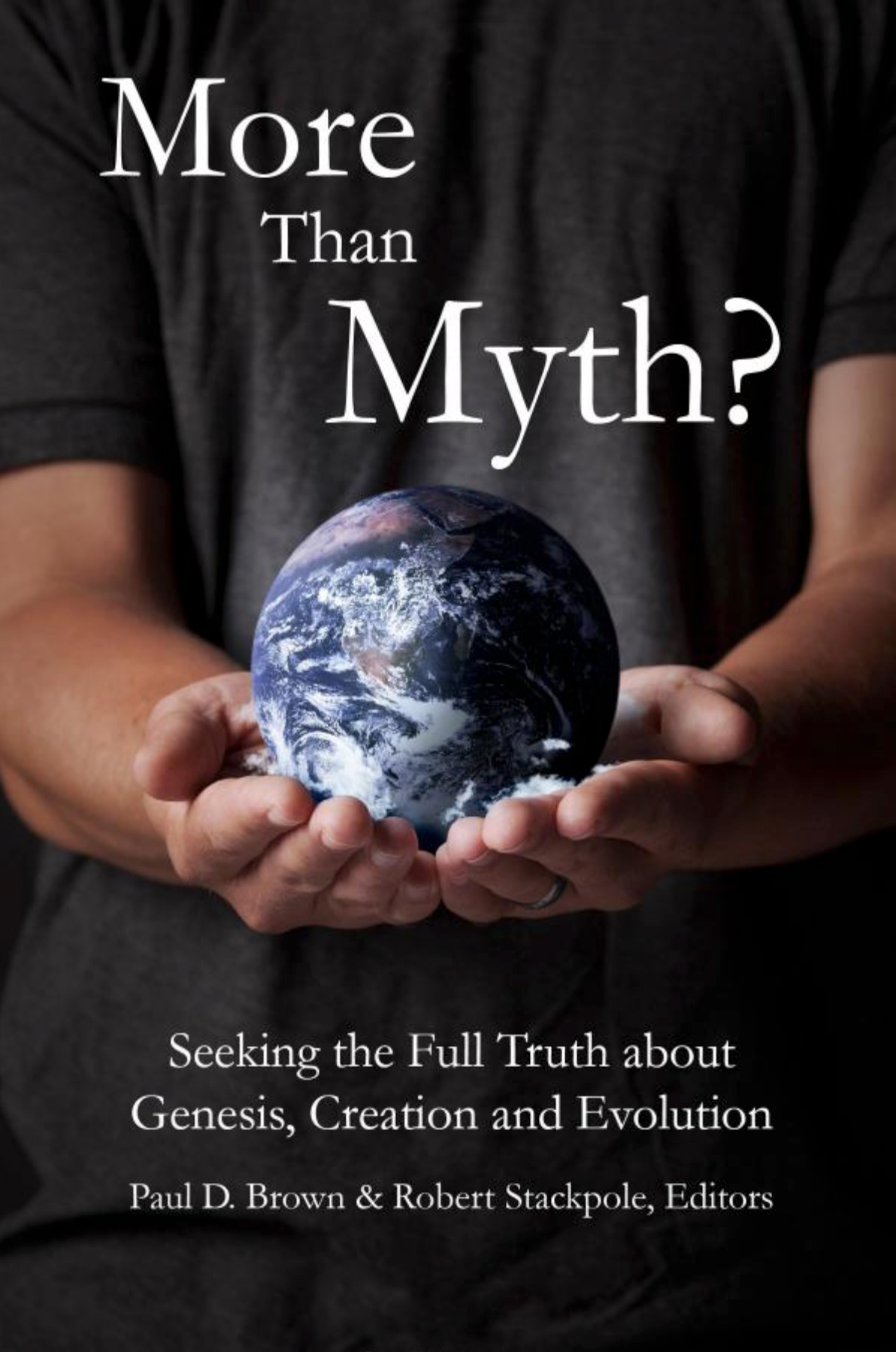My name is Father Michael Chaberek. Welcome to my website! I am a Dominican friar, and I hold a doctorate in theology. I developed the content of this website for a twofold purpose:
- To show the incompatibility of Thomistic philosophy with theistic evolution.
- To show the compatibility of Thomistic philosophy with the theory of intelligent design.
This website has a general and introductory character. Many of the arguments relevant to the debate over Thomistic philosophy and evolution are merely indicated here. Many of the relevant issues are not even mentioned. Some arguments have been presented in a generic form just to suggest the direction of the Thomistic answer to theistic evolution. I also left out references to the works of Thomistic evolutionists. The reader will find the fully stated arguments, as well as the references to the different sources, in my book Aquinas and Evolution.
Background
In 1859 an Anglican naturalist, Charles Darwin, published a book which challenged the traditional Christian convictions about the origin of species. Within a few decades Christian communities had produced several answers to the Darwinian theory of evolution, including versions of what are now called old earth creationism (OEC), young earth creationism (YEC), and theistic evolution (TE). Of these, the two responses with the largest followings today are young earth creationism and theistic evolution. Young earth creationism rejects modern scientific evidence for “deep time” which posits billions rather than thousands years of the universe’s existence. It derives its concept of creation from the literal interpretation of the Bible. For many of its critics, young earth creationism provides a classic example of the modern conflict between religion and science. The other answer to the theory proposed by Darwin is theistic evolution. According to this concept God started, guides or participates in evolution as a prime cause. Theistic evolution has been adopted by many theologians, philosophers and Christian scientists, thus becoming a predominant model for the modern synthesis (rather than conflict) of science and faith. Many followers of the philosophical ideas of St. Thomas Aquinas have adopted theistic evolution as well. According to “Thomistic evolutionists,” Aquinas’s teachings support the idea that God used evolution to produce the universe, specifically the different forms of life.
In the early 1990s the landscape of the discussion was changed. Amid the debates among atheistic evolutionists, theistic evolutionists, and young earth creationists, a new player entered the scene: the theory of intelligent design (ID). According to ID, the science of biology by itself, regardless of any Biblical teaching, challenges the core Darwinian claim that all biodiversity was produced by the interplay of random mutations and natural selection. ID created a new platform for the debate. It helped to separate the scientific debate over the mechanism of evolution from the religious debate over a correct interpretation of Genesis.
Aquinas and Intelligent Design
Thomas Aquinas believed that all our natural knowledge about God is derived by analogy from what we see in creatures. The beauty, order and design of the universe testify to the greatness of its Author. This Thomistic principle is independently confirmed in the Bible (Rom 1:20; Wis 13:1–9). But if this is the case, shouldn’t the progress of science bring more rather than less evidence for the existence and workings of the Divine intellect in the universe? Should not the Bible be confirmed rather than disproved by the discoveries of modern science? As a Christian scholar, I am convinced that no modern data contradict the traditional interpretation of creation. I also believe that the progress of science enables us to discover new evidence for design in the universe – the type of evidence that was unavailable to any ancient or medieval scholar. This type of evidence is the basis of the modern theory of intelligent design. And since “truth cannot contradict truth” the new evidence does not exclude or diminish any of the older arguments such as those presented by the great medieval scholar and saint, Thomas Aquinas.
Let’s begin with an introduction to the philosophy of Thomas Aquinas.



